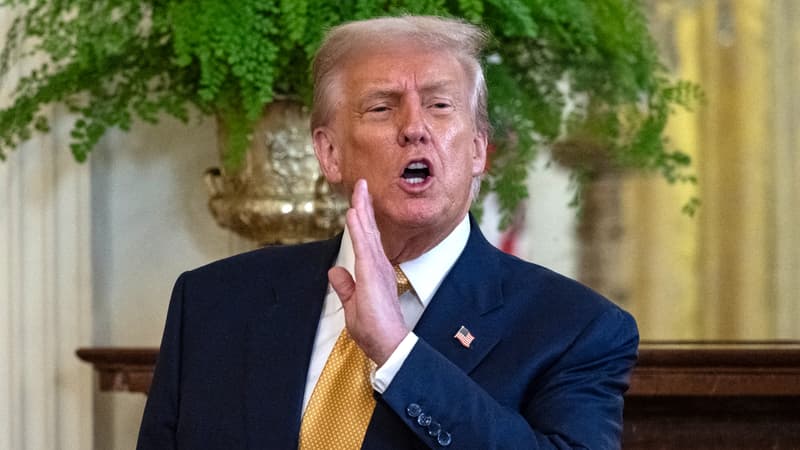Very noted by their scenarios that track the way to get out of fossil fuels, the International Energy Agency (IAI) is in the sights of the Trump administration, which seeks to impose its vision of a world that is still greedy in oil.
“They are in a difficult position,” recognizes a source accustomed to discussions with this institution. The writing of your next annual report on energy perspectives, for example, is for a balance number. Contacted by AFP, the United States Ministry of Energy refers to the muscle comments of its secretary Chris Wright.
The IAI governance and its subsidies are particularly in the viewfinder. First producer of OIL, the United States represents a great taxpayer in this institution proof of its 32 founding members
Created in 1974 after the oil clash to facilitate the supply of black gold from rich countries, the OECD body, the OECD, curled up a stone shot of the Eiffel Tower in Paris, has operated a spectacular turn in recent years with its scenarios that describe a decrease in fossil fuels and a massive boom in renewable energies.
What is worthwhile to AIE and his boss Fatih Birol to be under fire of the Trump administration, notoriously heated and professional.
“Tump”
In this tense context, the IAE has insisted in recent months in energy security instead of the transition. One of its recent reports encourages investing in new extraction projects to stop the natural decrease in hydrocarbon fields.
A “Flip-Flop”, proclaims the organization of oil export countries (OPEC): the IEA had presented a roadmap “carbon neutrality by 2050” that is supposed to give up any new Petro-Gazier project to wait to contain planetary warming to +1.5 ° C compared to the pre-industrial period.
This scenario is not buried. It appears in the next AIE report, its “world energy perspective” that is expected in November, according to two sources that have had a working version, which can evolve.
But there is a surprise: the return of an abandoned scenario in 2020, which showed how fossil fuels would continue to develop in the absence of an energy transition policy. “An attempt to calm the United States a bit,” said the source accustomed to discussions with the IAI.
His return is remarkable for an agency that had presented a stage two years ago anticipating a peak in the demand for fossil fuels (oil, coal, gas) in the decade, far from the forecasts of the Petro-Gazi industry.
On the rehabilitated scenario, “there is no (request) maximum,” says Marc-Antoine Eyl-Mazzega, energy specialist at the French Institute of International Relations, which was aware of the main aspects of the report.
This change “reflects this quite radical transformation of US positions in energy” and predicts a “battle of narratives on the world’s energy transformation,” says Mr. Eyl-Mazzega. It remains to be seen if “the other Member States can go up to the niche” in support of the agency’s work.
The decision to reintroduce this scenario “was based on the returns of multiple stakeholders,” argues the IEA.
“Disrum the clues”
“The Trump administration and, by extension, the Petro-Gazière industry currently needs to have narratives that say they can continue selling their products for decades, that the transition will not take place,” Romain Ioualalen deciphens Oil Change International.
For Neil Grant, analyst at the Climate Analysis Reflection Center, “we should all worry about the efforts of the Trump administration to test (…) to blur the tracks within the IAI.”
In a western energy company, we put it in perspective: “We must not fantasize with the so-called pro-competitive and gas influence of the Trump administration within the IAI, which remains an independent and serious institution.”
Examined every year by analysts, governments and industries, the next report “will contain several scenarios, each pointing towards different possible trajectories for energy demand,” the IAI indicates by emphasizing that “none” of its scenarios “was a prognosis.”
“The big question is its interpretation, because they serve as a point of reference for some or even dogma,” says Marc-Antoine Eyl-Mazzega.
Source: BFM TV


